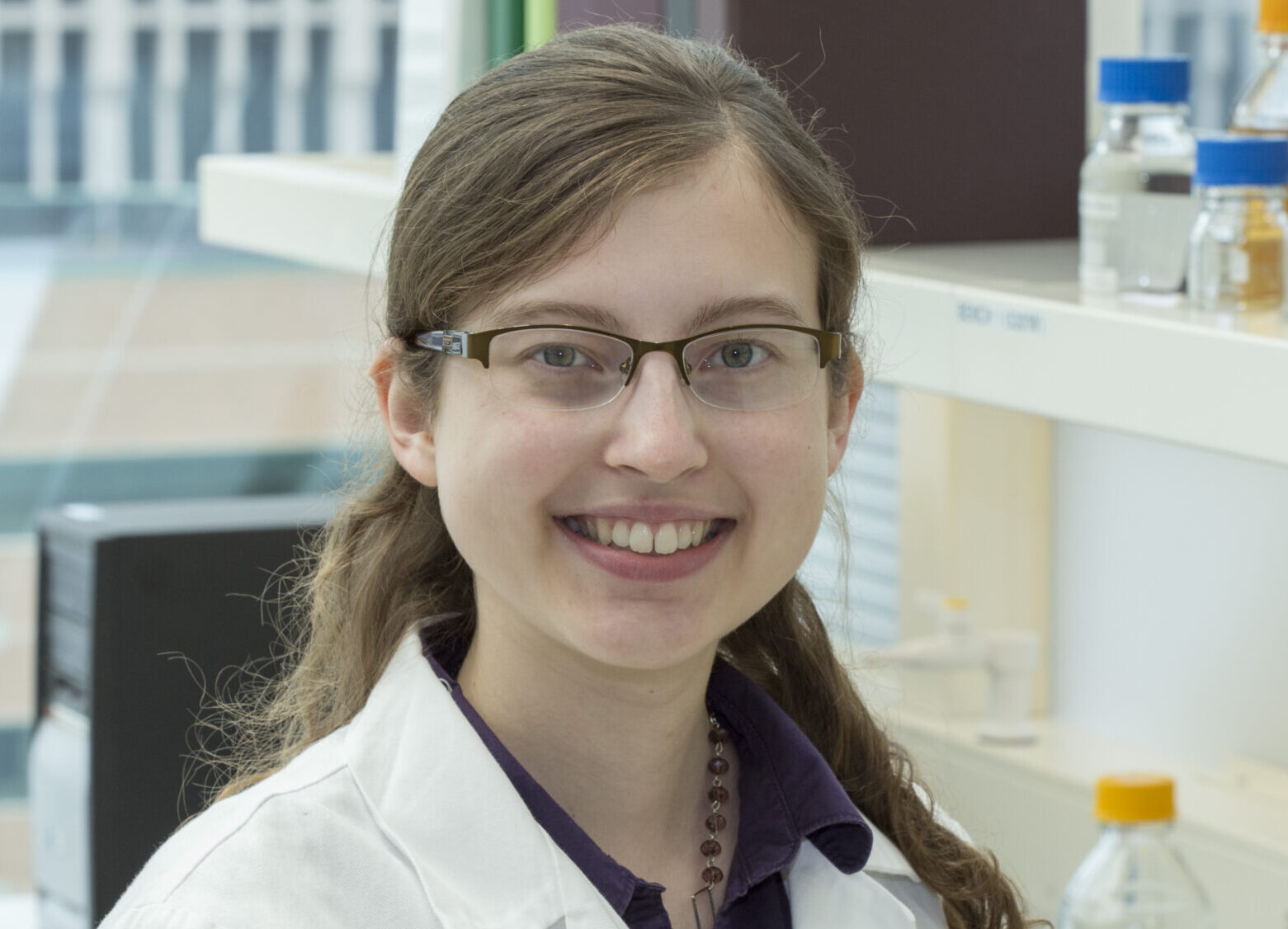Van Andel Institute Graduate School student earns prestigious award to study colon cancer
August 16, 2017

Graduate students at the Institute are more than just students—they are up-and-coming professional scientists who make valuable contributions to the life-changing research that goes on each day in our labs.
That’s why we’re thrilled to announce that Nicole Vander Schaaf is the first Van Andel Institute Graduate School student to be awarded funding through the National Cancer Institute’s highly competitive F31/Ruth L. Kirschstein Predoctoral Individual Research Service Award program, which supports students as they work on their doctoral research. The award will provide more than $129,000 in research funds over three years. It’s an outstanding achievement and one that will help Nicole investigate important questions that could help change the way we view and treat colon cancer, which claims more than 50,000 lives annually in the U.S. alone.
We caught up with Nicole to talk about her work, how this grant will help and what got her interested in science.
Q: Tell us about your research. What will this grant support?
NVS: The goal of my research is to better understand the epigenetic abnormalities of colon cancer cells. Epigenetics is the branch of science that studies how expression of genes within a cell is regulated without altering the cell’s genetic code. Scientists have long known that cancer cells contain mistakes in the genetic code that cause the cells to grow uncontrollably. More recently, scientists have discovered that the epigenome of cancer cells is also altered in a way that promotes cancer. We hope to identify key epigenetic changes that benefit cancer cells, which will help us develop new ways to treat this devastating disease.
Q: Why is this work important?
NVS: Previous research from our lab showed that intestinal cancer cells with genetic mistakes are incapable of forming tumors when certain epigenetic machinery is disabled. This suggests that colon cancer cells may depend on epigenetic changes for survival and/or growth. If we can identify these cancer-promoting epigenetic changes, we can design therapies to target and hopefully kill cancer cells. Colorectal cancer is the third leading cause of cancer-related deaths in the United States, so these discoveries have the potential to benefit thousands!
Q: How did it feel when you found out the grant was being funded?
NVS: I was excited and honored that the National Cancer Institute is investing in my scientific training and in a project that has the potential to help us understand what drives cancer at the most basic level.
Q: Why did you decide to pursue science as career?
NVS: I fell in love with science in high school when I discovered that there was so much more to life than I could see with my plain eyes (i.e., microbes and cells under a microscope). Originally, I wanted to become a high school science teacher, but my parents encouraged me to explore all of my career options. Having lost a grandmother to colon cancer, I thought it would be neat to become a cancer researcher someday, so I decided to study biology and give scientific research a try. I did a few summer research internships as an undergraduate and loved the notion that research allowed me to use my intellect, curiosity and creativity to potentially impact human health. I chose to further my training in science and research by pursuing a graduate degree in the sciences, which will equip me for a career in research, industry or university-level teaching.
Learn more about Van Andel Institute Graduate School here. You can also read more about Nicole’s work and all of the research in the laboratory of Dr. Peter W. Laird, Nicole’s mentor, here.
Research reported in this publication was supported by the National Cancer Institute of the National Institutes of Health under award number 1F31CA213897-01A1. The content is solely the responsibility of the authors and does not necessarily represent the official views of the National Institutes of Health.
